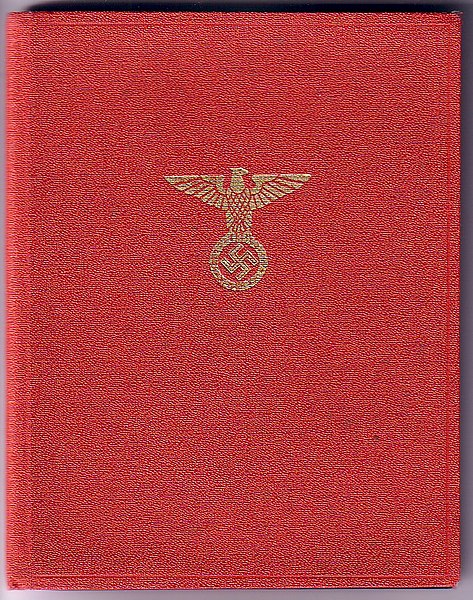German National People's Party
The German National People's Party was a national-conservative and monarchist political party in Germany during the Weimar Republic. Before the rise of the Nazi Party, it was the major nationalist party in Weimar Germany. It was an alliance of conservative, nationalist, monarchist, völkisch, and antisemitic elements supported by the Pan-German League. Ideologically, the party was described as subscribing to authoritarian conservatism, German nationalism, monarchism, and from 1931 onwards also to corporatism in economic policy. It held anti-communist, anti-Catholic, and antisemitic views. On the left–right political spectrum, it belonged on the right-wing, and is classified as far-right in its early years and then again from the late 1920s when it moved back rightward.
A DNVP poster from 1920 showing a Teutonic knight being attacked by Poles and socialists as the caption reads "Save the East"
Clemens von Delbrück served as the DNVP's chief spokesman during the National Assembly that wrote the constitution of 1919.
Karl Helfferich, leader of the DNVP's Reichstag delegation 1919–1924, was well known for his abusive and abrasive style of politics which led to Chancellor Joseph Wirth to accuse him in 1922 on the floor of the Reichstag of moral responsibility for the assassination of Walther Rathenau.
Reinhold Wulle (left) was one of the leaders of the DNVP's völkisch wing in the early 1920s who walked out of the party in 1922.
The Nazi Party, officially the National Socialist German Workers' Party, was a far-right political party in Germany active between 1920 and 1945 that created and supported the ideology of Nazism. Its precursor, the German Workers' Party, existed from 1919 to 1920. The Nazi Party emerged from the extremist German nationalist, racist and populist Freikorps paramilitary culture, which fought against communist uprisings in post–World War I Germany. The party was created to draw workers away from communism and into völkisch nationalism. Initially, Nazi political strategy focused on anti–big business, anti-bourgeois, and anti-capitalist rhetoric; it was later downplayed to gain the support of business leaders. By the 1930s, the party's main focus shifted to antisemitic and anti-Marxist themes. The party had little popular support until the Great Depression, when worsening living standards and widespread unemployment drove Germans into political extremism.
NSDAP membership book
Mein Kampf in its first edition cover
Nazis during the Beer Hall Putsch in Munich
Hitler with Nazi Party members in 1930








